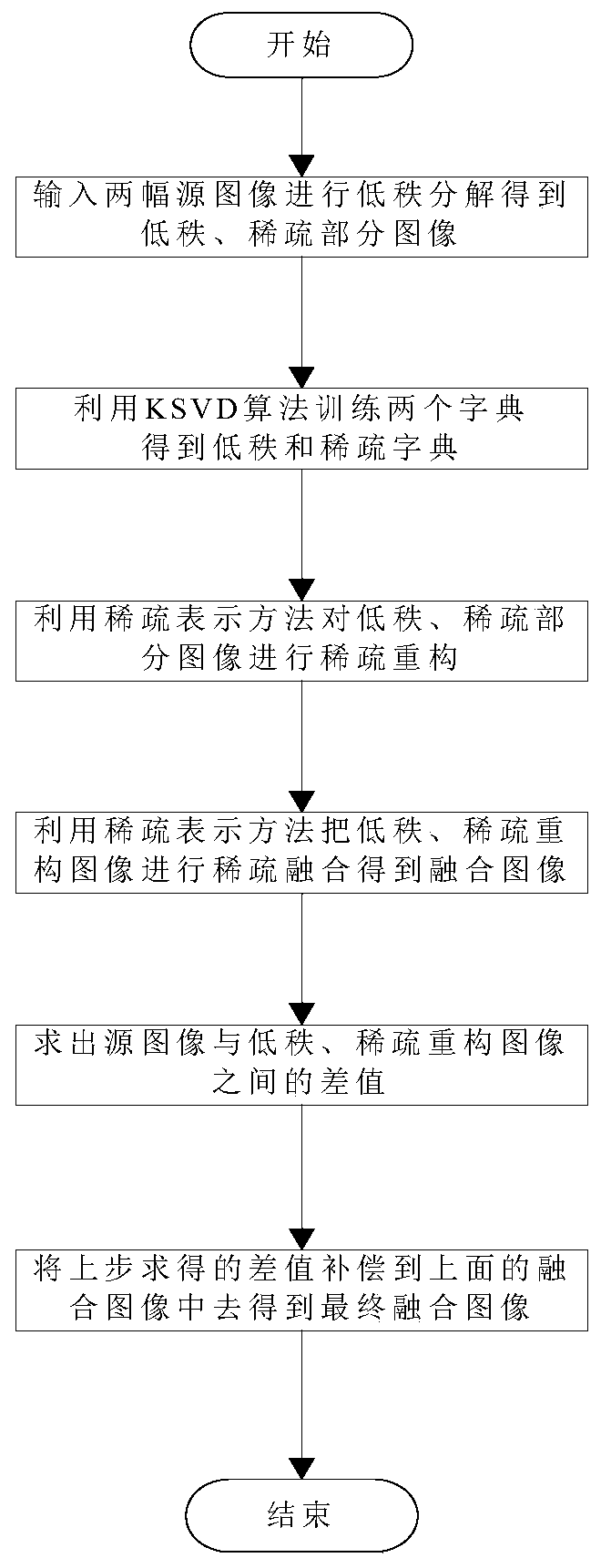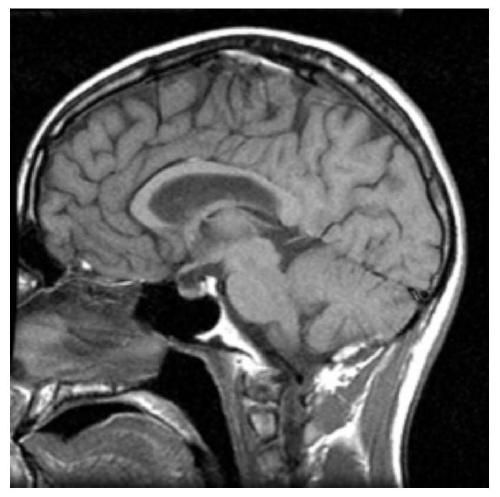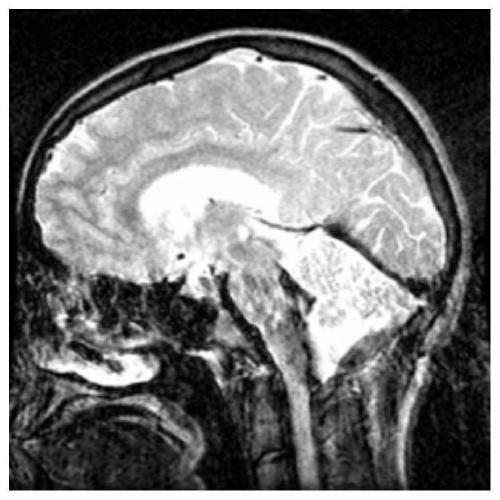A Multimodal Medical Image Fusion Method Based on Low-rank Decomposition and Sparse Representation
A sparse representation and low-rank decomposition technology, applied in the field of image processing, can solve problems such as single function, achieve concise representation, convenient processing, and good robustness
- Summary
- Abstract
- Description
- Claims
- Application Information
AI Technical Summary
Problems solved by technology
Method used
Image
Examples
Embodiment 1
[0026] Embodiment 1: a multimodal medical image fusion method based on low-rank decomposition and sparse representation, the specific steps of the method are as follows:
[0027] Step1, two CT and MRI images with a pixel size of 256×256 to be fused (such as figure 2 , 3 shown), using matrix low-rank decomposition theory to perform low-rank decomposition to obtain low-rank partial images and sparse partial images respectively (that is, after CT image decomposition, a low-rank partial image A 1 and a sparse partial image A 2 , the MRI image is decomposed to obtain a low-rank partial image B 1 and a sparse partial image B 2 );
[0028] Step2. Use K-means singular value decomposition algorithm to select non-medical image sets (such as Figure 4 shown) to train a low-rank dictionary, and use the K-means singular value decomposition algorithm to perform low-rank decomposition on the selected non-medical image set to obtain a sparse part of the image set (such as Figure 5 sho...
Embodiment 2
[0033] Embodiment 2: a kind of multimodal medical image fusion method based on low-rank decomposition and sparse representation, the concrete steps of described method are as follows:
[0034] Step1, two MRI and PET images with a pixel size of 256×256 to be fused (such as Figure 7 , 8 shown), using matrix low-rank decomposition theory to perform low-rank decomposition to obtain low-rank partial images and sparse partial images respectively;
[0035] Step2. Use K-means singular value decomposition algorithm to select non-medical image sets (such as Figure 4 shown) to train a low-rank dictionary, and use the K-means singular value decomposition algorithm to perform low-rank decomposition on the selected non-medical image set to obtain a sparse part of the image set (such as Figure 5 shown) to train a sparse dictionary;
[0036] Step3, using sparse representation method to low-rank partial image A 1 、B 1 and the sparse part of the image A 2 、B 2 Perform sparse reconstru...
PUM
 Login to View More
Login to View More Abstract
Description
Claims
Application Information
 Login to View More
Login to View More - R&D
- Intellectual Property
- Life Sciences
- Materials
- Tech Scout
- Unparalleled Data Quality
- Higher Quality Content
- 60% Fewer Hallucinations
Browse by: Latest US Patents, China's latest patents, Technical Efficacy Thesaurus, Application Domain, Technology Topic, Popular Technical Reports.
© 2025 PatSnap. All rights reserved.Legal|Privacy policy|Modern Slavery Act Transparency Statement|Sitemap|About US| Contact US: help@patsnap.com



